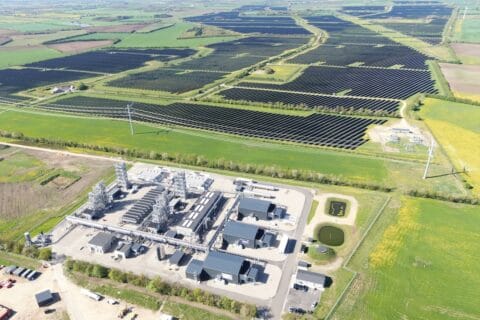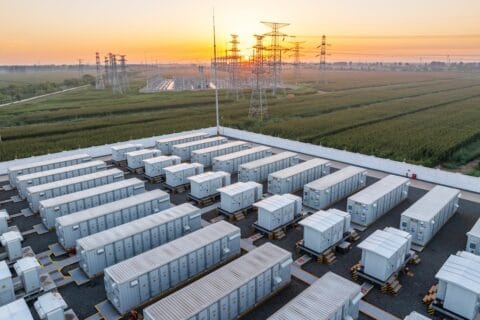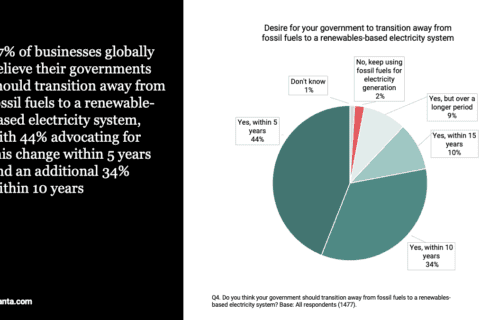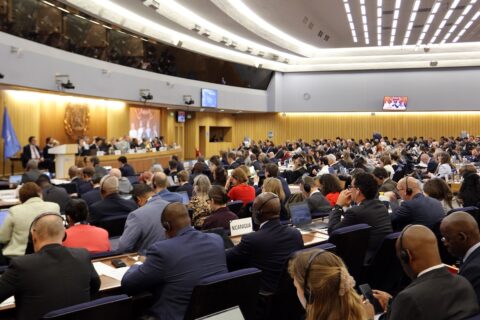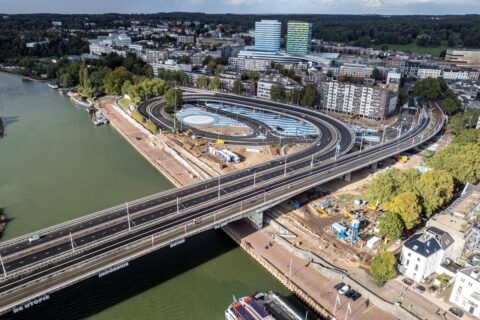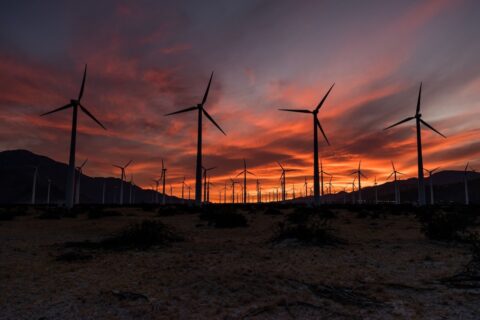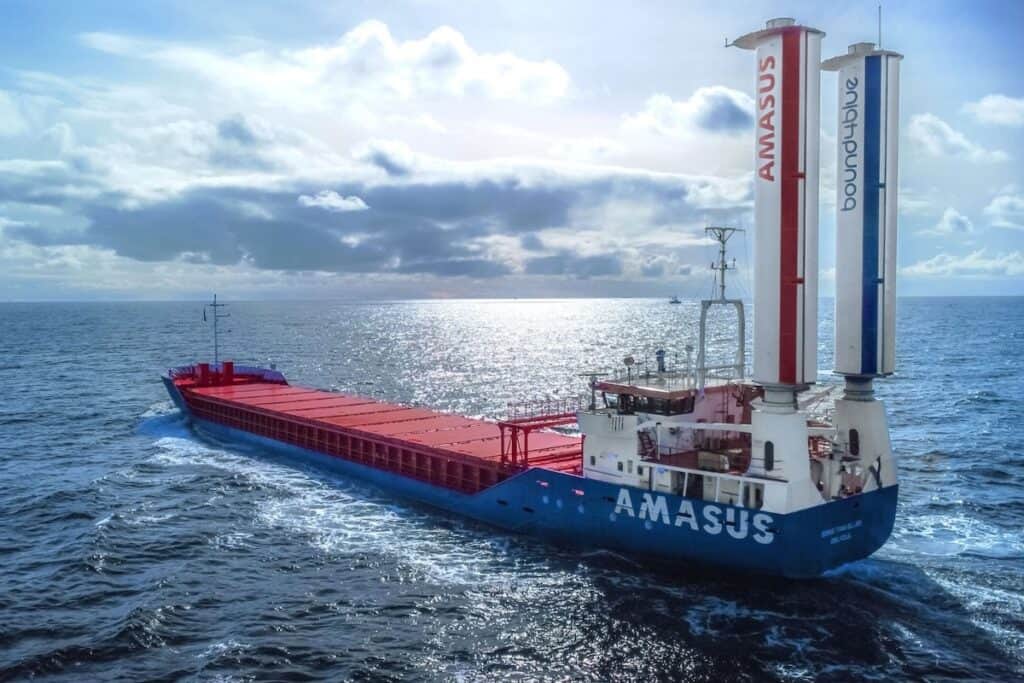
Part of a global green shipping revolution, innovative suction sails that help to cut both carbon emissions and fuel costs are on show aboard a cargo ship docked at a leading maritime event in Germany this week.
This year’s SMM international trade fair will become the first major maritime event to host a vessel featuring an advanced Wind Assisted Propulsion System (WAPS). The 2,850dwt Eems Traveller sailed in to dock at Überseebrücke, Hamburg, appearing there over two days of the show, on 3 and 4 September 2024.
Owned by Amasus, the Dutch-flagged general cargo ship will showcase its two 17m-high eSAILs (suction sails) from maritime tech pioneer bound4blue. The propulsion system demonstrates how wind can help an industry in transition to cut costs, emissions, and comply with increasingly stringent regulations.
Onboard the vessel, bound4blue will be sharing operational test data, giving visitors to SMM the opportunity to see the technology, and learn more about it, up close, in situ on an active cargo ship.
Landmark vessel was largest-ever installation
The turnkey eSAIL solution from bound4blue was installed aboard the Eems Traveller in two easy phases: First, the sail foundations were fitted during a scheduled vessel stop in the Netherlands for a five-year class renewal survey; then the sails themselves were installed, in just four hours, at the Port of Bilbao.
Robust, simple and market proven, the autonomous eSAIL technology works by dragging air across an aerodynamic surface to generate exceptional propulsive efficiency, with zero operational input from crew. This solution dramatically reduces fuel use, OPEX and emissions to air.
The installation is generating valuable data, says David Ferrer, co-founder and CTO, bound4blue:
“Eems Traveller is a landmark vessel. The twin sails installed in July 2023 were, at the time, the largest ever suction sails seen in maritime. Operations to date have delivered a wealth of in-depth data to demonstrate their tangible environmental impact. We look forward to sharing our findings at SMM.“
The units enhance compliance with existing and upcoming regulations, including improving vessel CII ratings, boosting EEDI and EEXI, complying with the advent of FuelEU Maritime, and contributing to saved allowances within the EU Emissions Trading Scheme.
In addition, bound4blue has taken another step forward with the news that its unique eSAIL has received full Type Approval Design Certificate (TADC) from DNV. The issued certificate validates complete compliance with the classification society’s Wind Assisted Propulsion Systems (WAPS) technical standard, demonstrating that the breakthrough suction sail technology is in line with the industry’s most advanced rule set.
Independent accreditation marks another milestone in mainstreaming the technology, concludes Ferrer:
“Receiving the TADC from DNV provides third-party validation, quality stamping our system and helping fast-track customer due diligence procedures. We believe this will work to accelerate the adoption process and facilitate further orders. Given the impact of regulations such as EU ETS, CII and the upcoming FuelEU Maritime move, I can’t think of a better time to push wind power up the shipping agenda.”
Lloyd’s Register has also been tasked with third-party evaluation to verify performance and savings.
Maritime innovation between Spain and the Netherlands
Bound4blue develops automated wind-assisted propulsion systems as a turnkey solution for all shipowners and shipping companies seeking to reduce fuel costs and polluting emissions. Its eSAIL system offers a validated solution and is completely autonomous, with low maintenance and easy installation onboard.
The company has installed its eSAIL system on four ships to date. It has also signed additional agreements with other shipowners such as Eastern Pacific Shipping, Marflet, Louis Dreyfus Company, Marubeni Corporation, Odfjell and SNA TUHA’A PAE to install the system on their fleets.
The eSail system is suitable for tankers, bulkers, cruises, ferries and gas carriers, plus RoRo (roll-on/roll-off) and general cargo vessels, regardless of their size or age.
Founded in 2014 with a focus on renewable energy in the maritime field, bound4blue has its headquarters in Cantabria (Spain), with offices in Barcelona and Singapore.
Amasus is a full-service shipping office, located in the former nautical school and the Abel Tasman National Monument in the city of Delfzijl, in the Netherlands. Amasus owns and operates ships in the shortsea, bulk, general cargo, offshore and worldwide heavy lift markets, including RoRo.
Amasus has been engaged in chartering and total ship management for its own fleet of ships, for a large number of shipping companies and captain owners for more than 43 years. It also has terminal facilities in both Eemshaven and in the port of Delfzijl.
Underpinning its drive for technical innovation, the sustainability vision for the firm mandates that the creation of added economic value should be combined with social justice and a healthy living environment.
Further Reading:
- More about bound4blue , developer of the eSail (suction sails) technology;
- More about the Amasus full-service shipping office, owner of the Eems Traveller;
- More about the Type Approval Design Certificate (TADC) from DNV;
- More on SMM, the international maritime trade fair;
- Also on SustMeme, Energy-saving methanol supply for green shipping;
- Also on SustMeme, Zero-emission ship design unveiled as ‘Tesla of the Seas’;
- Also on SustMeme, Green berthing area for Port of Hamburg moors ships off-grid;
- Also on SustMeme, Hydrofoils can help electric ferries fly across the sea;
- Also on SustMeme, First hybrid crew transfer vessels for UK offshore wind farm;
- Also on SustMeme, Decarbonising logistics: ‘Supply Chain Resilience’ in ‘The Sunday Times’.
Check out the full archive of stories on the SustMeme Transport & Mobility Channel, now available to Sponsor.

